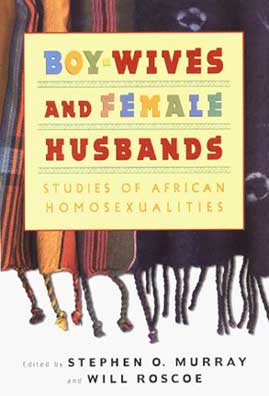‘Yan daudu refers to effeminate men in the Sahel region of West Africa. (singular: ‘dan daudu) who are recognized in Hausa culture as men who behave as women. ‘Yan daudu have various roles, such cooks, venders, entertainers, go-betweens for men seeking sex workers, and mediums that go into trance during Bori trance ceremonies. In terms of Gay culture, ‘yan daudu represent a gender/orientation identity that arose independently of the increasingly international LGBTQ movement.
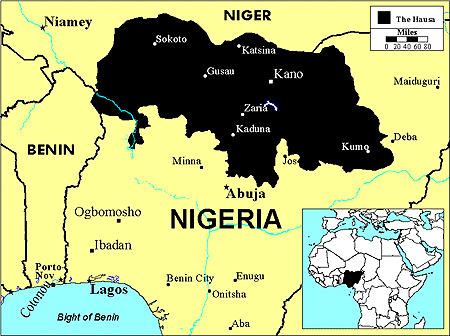
The region in Northern Nigeria that is home to the Hausa (prayway.com/unreached/peoplegroups/279.html, January 2013) Top image: more detailed map of region where Hausa is spoken in Nigeria and Niger (en.wikipedia.org/wiki/File:Hausa_language_map.png, January 2013)
Bori is a Hausa spiritual tradition that is tolerated somewhat in predominantly Muslim Hausa society. “Bori” is also the name for rituals in which mediums dance, go into trance, and manifest spiritual beings. Bori spirits tend to manifest themselves among marginalized people, such as ‘yan daudu, poor women, and sex workers.
‘Yan daudu (“sons of Daudu”) are named after Daudu (also known as dan galadima, “son of the prince”) a Bori spirit depicted as a handsome young nobleman with a penchant for gambling. Although ‘yan daudu-identified people attend Bori rituals, contribute to their production, and may even manifest Bori spirits while in a trance state, ‘yan daudu do not necessarily manifest Daudu, their namesake.
Orientation, Gender, and Power
‘Yan daudu hold an important function in Hausa recreational and festive folklife as entertainers. They dance before groups of men where traditional Hausa music is played and act as brokers for men seeking karuwai (female sex worker-companions). Since ‘yan daudu are at the nexus between public festival and private sexual encounter with karuwai, they may also be companions for men who seek men for sex (known as fararen-hula or “civilians”). Although ‘yan daudu are effeminate and have sex with men, they also marry women and raise children of their own, thus complying with Muslim Hausa expectations of manhood. This does not mean, however, that all Muslim Hausa accept ‘yan daudu.
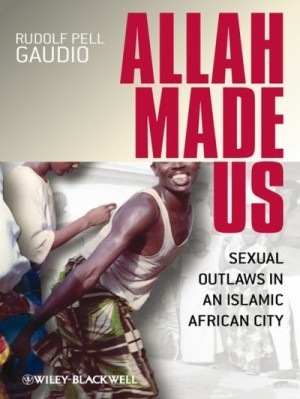
This book “Analyzes the social experiences and expressive culture of ‘yan daudu (feminine men in Nigerian Hausaland) in relation to local, national, and global debates over gender and sexuality at the turn of the twenty-first century” (search.overdrive.com/ti/c993baf3-18b9-442f-8f42-06335a8a1885-50-1-1-1-1/allah-made -new-directions-ethnography-ebook, January 2013)
Hausa society is like other societies that tolerate male same-sex romance but still expect men to have female wives and to father children. This phenomenon can be found in some form in many places around the world, including predominantly Islamic communities like those of the Hausa. The primary concern is that the effeminate/homosexual man fulfills his duties as a son and produces the next generation. Regardless of his sexual orientation, he is expected to make a serious commitment to marriage, procreation, and proper guidance for his children. In the USA and Canada, current configurations of orientation and gender may not account for these kinds of social relationships in which Gay-related identities are merged with heterosexual responsibility.
‘Yan daudu social status tends to be low, and those who have it may describe themselves as silly, playful, or crazy, as not to be threatening to the status quo. They usually refer to each other in feminine terms such as kawata (“my girlfriend”) or uwata (“my mother”). If two ‘yan daudu fall in love, they are called ‘yan kifi, the Hausa equivalent of “lesbians.” This name also applies to masculine men of equal social standing who fall in love because there is no clearly dominant partner. The importance of power dynamics in terms of identity is such that, if an older ‘dan daudu seeks intimate companionship from a younger “civilian” and is willing to pay for it, the younger partner in this relationship is considered the older man’s haja (property), which is identical to the lesser status accorded to karuwai.
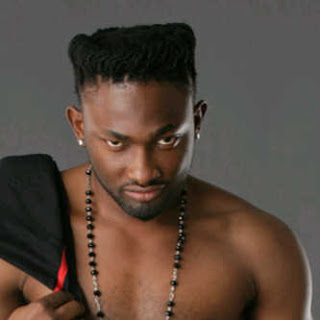
The feminization of same-sex oriented men in the construction of ‘yan daudu identity extends to any man suspected of having homosexual tendencies. Rumors about Hausa celebrity Uti Nwachukwu being homosexual resulted in him called Kyakywar Yarinya or “gorgeous damsel” despite his protests to the contrary (yonlineng.com/2012_10_08_archive.html, January 2013)
Speech Performance
‘Yan daudu are noted for rhetorical skills in two genres of Hausa folk speech: karin magana (“folding of speech” or proverbs) and habaici (innuendo), two indirect forms of communication that tend to be associated with lack of power, thus with women, since men are expected to more direct. The obliqueness of karin magana and habaici puts them in the performance frame of hilarious and entertaining speech, thus allowing ‘yan daudu more freedom to address taboo issues. It should be noted that indirect speech is a common hallmark of cross-dressing and Trans identities worldwide, situating speech performance in a humorous frame as to make transgressions of orientation and gender less offensive, yet drawing attention and a degree of power to those who are adept at such performance.
Dispute Concerning Homosexuality in Africa
Some African leaders and scholars have claimed that homosexuality was brought to Africa by European colonizers and is therefore foreign and un-African. According to Stephen Murray and Will Roscoe, however, ethnologies on African societies present plenty of evidence that orientation and gender variation are part of many traditional cultures.
Examples such as the ‘yan daudu in Hausaland (northern Nigeria and possibly other parts of the Sahel), the ashtime (effeminate men) among the Maale in Ethiopia, mashoga (effeminate men) and wasagaji (women who love women) in coastal Kenya, the reputation of Shalaamboot in Somalia as a traditional (if somewhat mythical) haven for effeminate men, motsoalle relationships between women in Lesotho, and records about the masculine-clothed female King Nzinga from coastal Angola (with her harem of cross-dressing male wives), as well as trans gods in the traditions and myths of peoples throughout the continent, all undermine the argument that homosexuality and gender variation are solely European imports.
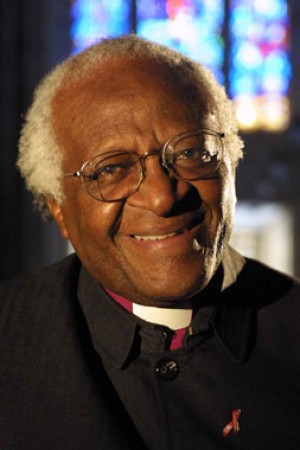
Bishop Desmond Tutu of South Africa has been a staunch supporter of the LGBTQ community in his home country of South Africa, helping to make it the first country in Africa where LGBTQ people are granted full citizenship, including marriage equality (mambaonline.com/article.asp?artid=7690, January 2013)
In South Africa, it is against the law to discriminate against the LGBTQ community. Nevertheless, homophobia is strong in much of Africa, in large part due to imported Christian and Muslim perspectives on sex and gender that overlay older, possibly more tolerant traditions.
– Mickey Weems
QEGF Authors and Articles
QEGF Introduction
Comments? Post them on our Encyclopedia facebook page.
Further reading:
Cornwall, Andrea. Readings in Gender in Africa. London: The International African Institute, 2005.
Gaudio, Rudolf Pell. Allah Made Us: Sexual Outlaws in an Islamic African City. Malden, MA: John Wiley and Sons, 2009.
Murray, Stephen O. and Will Roscoe. Boy-Wives and Female Husbands: Studies of African Homosexualities. New York: Palgrave, 1998.

